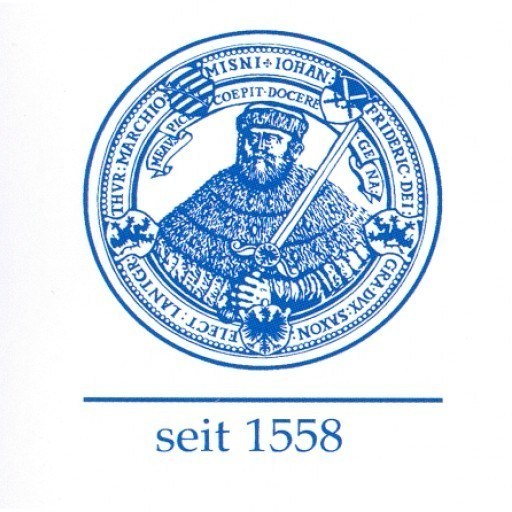Photos of university / #unikassel
Economic Behaviour and Governance at the University of Kassel offers an interdisciplinary and comprehensive master's program designed to equip students with the analytical skills and theoretical knowledge necessary to understand the complex mechanisms of economic decision-making and governance processes. The program focuses on exploring how individual and collective economic behaviors influence markets, institutions, and policy outcomes. It combines insights from economics, psychology, political science, and sociology to provide a well-rounded perspective on economic activities and governance structures.
Students will engage with a wide range of topics, including behavioral economics, public policy analysis, institutional economics, and organizational governance. The curriculum emphasizes quantitative and qualitative research methods, encouraging students to develop strong empirical skills. Through a variety of lectures, seminars, and project work, students will examine real-world issues such as market failures, regulatory challenges, corruption, and the impact of cultural and social factors on economic policies.
The program aims to prepare graduates for careers in public administration, policy consultancy, international organizations, and research institutions. It also offers a solid foundation for those interested in pursuing doctoral studies in economics, political science, or related fields. Specializations within the program allow students to tailor their studies to their interests, focusing on areas such as sustainable development, social justice, or institutional reform.
The University of Kassel's location in Germany offers students opportunities to participate in research projects, internships, and collaborations with policymakers and organizations. The program emphasizes the development of critical thinking, ethical reasoning, and communication skills, ensuring graduates are well-equipped to tackle contemporary challenges in governance and economic behavior. Graduates leave with a thorough understanding of the complexities of economic decision-making and the governance mechanisms that shape economic outcomes at local, national, and global levels. This master's program is ideal for those seeking a dynamic and intellectually stimulating environment to deepen their understanding of economic behavior and governance processes.
Educational organisation
All seven modules can be completed in the first two semesters of the Master's programme. The Master's thesis will be written in the third semester.The modules include either lectures or seminars. Given the large number of courses held in English and the opportunity to write the Master's thesis in English, it is possible to graduate entirely with courses held in English. No knowledge of German is required for participation in the programme. However, German-speaking students can acquire up to two-thirds of the credits in German.
Study abroad unit(s)
Students have the opportunity to participate in optional study visits abroad.Forms of assessment
The following types of examination are possible:- written exam (at least 15 min. per credit)
- oral exam (20-30 min.)
- written paper or term paper respectively
- oral presentation in combination with a written paper
Course objectives
The objective is to provide students with profound knowledge in behavioural economics with a strong focus on applied research questions. We introduce students to advanced theories in the field of behavioural economics and governance and to advanced empirical methods. Furthermore, we train them to apply these theories and methods to analyse important problems in contemporary economic policy.The overall objective is to provide students with an excellent education in economics with a special focus on behavioural economics, empirical methods and the application of both to economic policy and governance issues.
The Master's programme qualifies students for a wide array of jobs in academia and beyond. The strong emphasis on governance and economic policy issues opens up career opportunities in government agencies and public administration, supranational organisations, NGOs as well as multinational firms.
Language requirements
Students must have good knowledge of the English language. Non-native speakers are required to hold an international language certificate at level B2 (GER) or equivalent.Academic requirements
1) Students must hold a Bachelor's degree in Economics, Business Studies or a similar field of study.2) In their Bachelor's studies, students must have
- acquired 210 credit points (ECTS or equivalent) in total
- gained profound basic knowledge in the fields of economics and its methods
- 60 ECTS credits in Economics, Business Ethics or Economic Psychology
- 18 ECTS credits in Mathematics, Statistics or Econometrics
4) Students who do not fully satisfy the above requirements may be admitted but the admission committee can impose additional requirements which must be fulfilled during the period of study up to completion of the Master's thesis.
Please note in particular: students who acquired only 180 ECTS credits (or equivalent) during their Bachelor's studies can be admitted if they fulfil the language requirements and have profound basic knowledge in economics and its methods. During their Master's studies, they are required to pass additional courses to make up for 30 ECTS credits.
Enrolment fees
Mandatory registration fees allow students to use public transport free of charge and the university's refectories and cafeterias at reduced prices. For example, the registration fee for the summer semester of 2016 amounted to approx. 275 EUR.Costs of living
In order to cover personal expenses while studying in Kassel, it is recommended that students budget around 750-900 EUR per month for accommodation, food, health insurance, books, and miscellaneous expenses.Job opportunities
Students can apply for various part-time jobs or work as student assistants on campus. Please have a look at http://www.uni-kassel.de. Some departments also provide positions as tutors or student assistants.Arrival support
An orientation week is regularly offered to international students. During information sessions, tours, excursions, events, and leisure-time activities, international students get to know their departments, courses, the campus, and life in Kassel or Witzenhausen and become acquainted with their lecturers and fellow students. Students get the chance to make new friends during the campus rally or at the get-together brunch. Senior student tutors will assist foreign students with any questions or problems they may encounter during their stay.Services and support for international students
Orientation week at the main site in Kassel: owoche@uni-kassel.deSupport service at the campus site in Witzenhausen: tutor-int@uni-kassel.de
Contact for exchange students: sabineernst@uni-kassel.de
Welcome Centre: http://www.uni-kassel.de/go/welcome-centre









